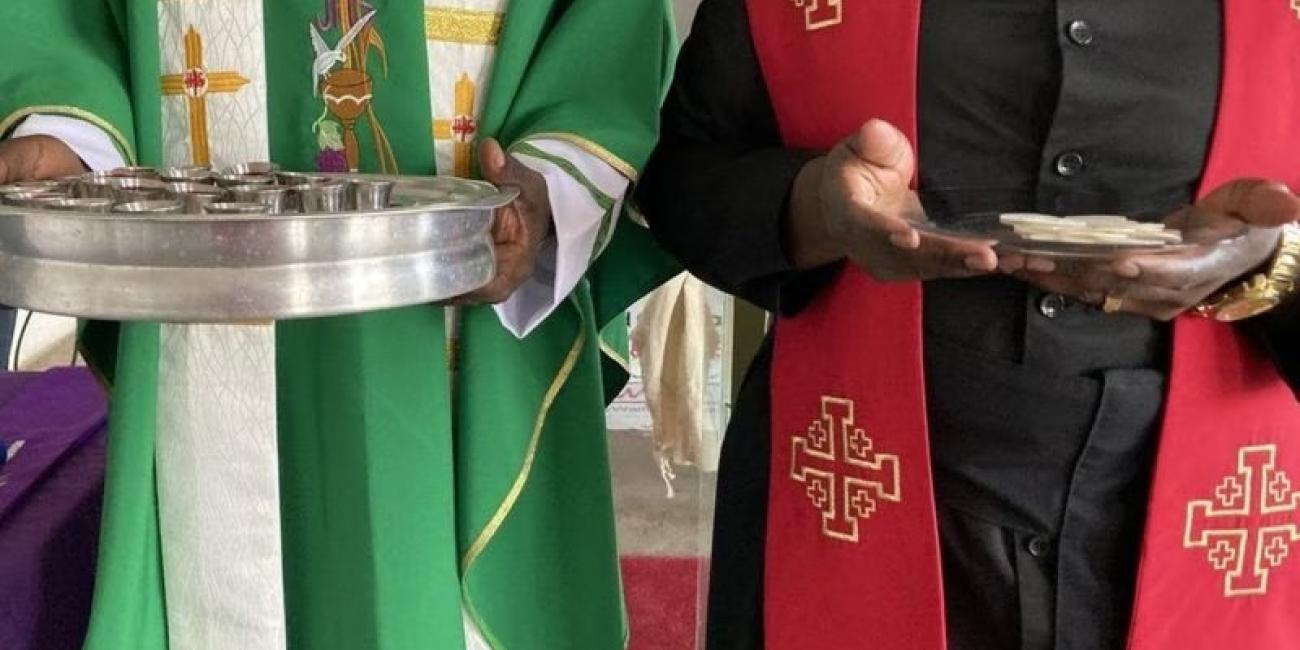Revealed: Kenyan Church Set Up To Welcome LGBT Worshippers Has Secretly Operated For 10 Years
Posted by Samuel on Sun 17th Dec, 2023 - tori.ng
A church in Kenya has been secretly embracing gay worshippers within its congregation, a report by the BBC has shown.
The church which was said to have been in operation for 10 years does not publicise its services in the country because of its inclusive policy towards LGBT community.
"The first time I entered the church I cried," John, a pastor initially ordained in a mainstream church, told the BBC.
He left his parish when church leaders advised him that his sexuality was evil and that he should remain celibate.
"I never imagined in my life as a priest, I would be in a space where I would say three words that people think are conflicting. That I am black, I am gay, I am a priest."
He learned about the church where he now preaches through social media, however most people learn about it through word of mouth. His name, like that of everyone else interviewed in the church, has been changed to protect his identity.
Its members are also very cautious about releasing details about their gatherings; those who seek to join are rigorously checked before being welcomed in, to ensure it is not a trap or someone nasty.
All worshippers agree that security and safety are of the utmost importance.
Gay intercourse is banned in Kenya, a socially conservative country, however, the Supreme Court this year overturned a restriction on gay and lesbian associations registering as non-governmental organisations.
Music floats from the interior of a nondescript structure as a BBC reporter joins a service on a warm and breezy Sunday.
People start pouring in, and it quickly fills up with about 30 people.
"We are about to begin. Shall we close our eyes and meditate," says Pauline, a minister in a long black robe and crimson red scarf. The whole room hushes.
Pauline is an openly non-binary lesbian, who uses "they" and "them" as personal pronouns, and is one of the church's founders. Initially it was just a few friends coming together to offer each other support.
"When you are removed from a space [church], there is an urge to know if anyone else has been excommunicated," says Pauline, who was not excommunicated but never felt accepted at mainstream churches.
"We wanted to meet other queer Christians who affirm themselves."
A feeling of alienation had dominated Pauline's life, especially since their father died of HIV/AIDS when they were 12.
"After my dad died, people started treating us differently. They thought we all had HIV. My mum would be served in different cups and plates and we stopped being allowed into some spaces. Church was one of the places we couldn't visit because people believed my mum was 'dirty'," says Pauline.
Such ostracisation became a pattern, with every church seeming to question some aspect of Pauline's life - whether it be how they dressed or why they chose not to be perceived as being in a conventional relationship.
So Pauline and their friends started meeting on Sundays to watch sermons on YouTube while reaching out to other LGBT Kenyans as well.
It occurred at a period when anti-gay propaganda was on the rise in East Africa. Uganda was debating the introduction of a severe new anti-homosexuality law, which has since been toughened.
They had no idea that after ten years, their small gathering would have grown to include more than 200 people.
Most of them felt compelled to abandon their prior places of worship.
For Regina, it followed a dramatic confrontation with a fellow volunteer - part of a team that organised events at her church.
The team gave her an ultimatum when the volunteer found out that she had a girlfriend: her or them.
"It felt like betrayal. I had mentored some of them and now, I couldn't be a part of them anymore. Here were people who couldn't extend grace for people to be different," she was quoted by BBC.
Regina chose her girlfriend. A decade later, yearning to reconnect with her Christian faith and a community, her journey led her to the queer-affirming church.
"There was a time I felt like I had no access to God. All I'd ever heard was that I was a sinner. If prayer is a way of talking to God, how then could I pray? Coming back into a community of faith has allowed me to let go of past hurt," she said






















































